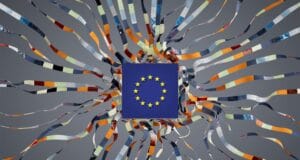This content was created by the Data Sharing Coalition, one of the founding partners of the CoE-DSC.
According to Mobility Data Space (MDS), data is the fuel to create mobility services that improve mobility. However, it needs to be shared to be able to deliver value-added mobility services, for example multimodal journey planning or optimised parking usage. Mobility Data Space was initially founded as a project. It has been a startup since the end of 2021 and started business operations in January 2022. Examples of shareholders of MDS are Volkswagen, Mercedes, BMW, Deutsche Bahn, DHL and eTicket Deutschland. The German company has about 50 participants now (besides the shareholders, FreeNOW, ZF, ADAC, Tennet, Hubject, Software AG and Intertrust are examples of participants) that are all realising mobility solutions. During our next Community Meeting, Michael Schäfer, Managing Director of Mobility Data Space, will provide insights into their vision and objectives. He will also discuss challenges and success criteria of digital ecosystems. We spoke to him in advance.
Mobility is crucial
Michael: “We cannot continue the way we are using mobility now, think of electricity shortages and carbon emissions. But the potential changes we make shouldn’t come at the expense of the quality of mobility. We must improve mobility because accessible transportation is important for society as a whole: for rural areas, elderly people, education, equality and the economy. The automotive industry is extremely important, especially in Germany. Mercedes, BMW and Volkswagen play a key role in improving mobility.” The Concerted Action Mobility was founded, which examines mobility in Germany. Various projects were started in different areas of mobility and Mobility Data Space was one of them. Michael: “The government states that ‘the mobility of the future is increasingly digital’. In the recently published Digital Strategy of Germany, we are on top of the list of role models. We are very proud of this.”
Sharing data ‘the European way’
Mobility Data Space is a B2B data marketplace that brings together data providers and users. It enables secure, fair and transparent sharing of mobility data without violating proprietary rights. The MDS wants to do this the ‘the European way’, which means it follows the European data space standard (IDSA), ensuring compatibility with other European data spaces and Gaia-X. MDS uses a peer-to-peer approach: it matches parties, facilitates the data exchange and makes sure parties can set up contracts and share data in a fair and sovereign manner. Michael: “The key principle is that the parties amongst themselves set up contracts. They don’t only consider the price or value of the data, but also the policies of the contract. So, you have full control over under which circumstances you are going to sell your data and to whom.”
According to Michael, the most important attribute of a data space is that data is shared in a decentralised manner. MDS is like eBay for mobility data: the seller sends the purchased product to the bidder (peer-to-peer). Like eBay, MDS just runs the central catalogue and creates a system of trust where data is shared peer-to-peer.
Working together is crucial
Michael says it’s not only about growing your own business anymore, it’s about helping each other grow the sector as a whole. Michael: “We share data that is relevant for and related to mobility. Not just mobility data, but also weather data and electricity data because these have a great influence on mobility. Therefore, data spaces from different domains should be combined.” Take for example the FREE NOW use case. This is a multimodal mobility platform that uses weather data from the German Meteorological Service and supports app users with real-time data and notifications in choosing the appropriate means of transportation. eScooters, for example, are more suitable for sunny weather, while cabs and rental cars are preferable in rainy weather. Mobility Data Space matches relevant parties with FREE NOW and enables them to set up contracts and share data. For example, the real-time weather data obtained by FREE NOW via Mobility Data Space provides users recommendations for their journey. Michael: “This is a great example of what data spaces can do: in order to provide their service, they need data from many different sources.”
The future of data spaces
Michael has a clear vision for the future: “I believe we are only at the very beginning of data spaces. I call it ‘the wild west of data spaces.’ We must combine data spaces and make them interoperable. Eventually, there will be one data space, just like there is just one internet. MDS facilitates data sharing, together with initiatives in other countries such as the DIO in Austria. And the Data Sharing Coalition plays an important role in gathering knowledge about data sharing and spaces from different domains. Data doesn’t stop at borders and mobility doesn’t stop at borders, so we have to work together.”
On September 29th, during our next Community Meeting, Michael will further elaborate on their vision with regards to data sharing. Do you want to attend this Community Meeting? Do not hesitate to send us an email: [email protected]




